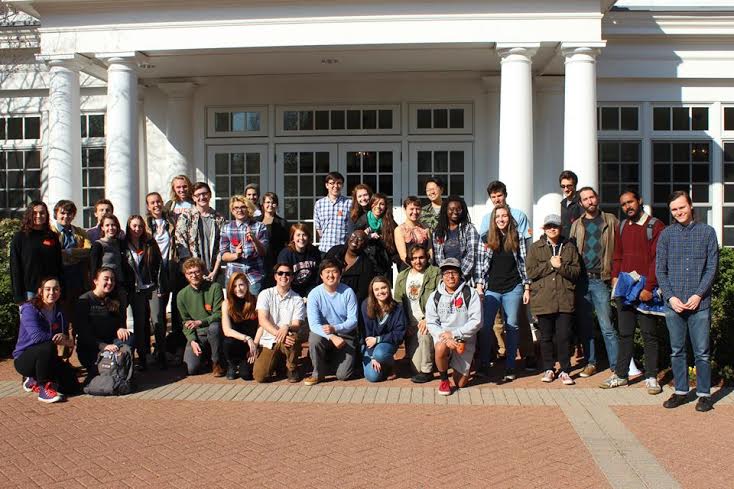UMW removes fossil fuel investments

Photo by: Emily Hollingsworth

Logan Bogert
Contributing Writer
The University of Mary Washington Board of Visitors decided in a meeting on April 13 to be the first institute of higher education in Virginia to publicly declare a commitment to remove its investments from the fossil fuel industry.
The BOV passed legislation to make divestment from fossil fuel companies an official policy with the majority voting in favor. This legislation states the UMW Foundation will revise their investment policy to limit discretionary fossil fuel investments to be between 1 and 4 percent. UMW will be between 96 and 100 percent free from the largest 200 companies profiting from fossil fuels — also known as the “Carbon 200.”
The new fossil fuel legislation is largely due to the efforts of Divest UMW, a student-run campaign launched in 2013 to encourage the university to change their fossil fuel investment. 2015 UMW alumn Zakaria Kronemer, helped launch the campaign three years ago.
Kronemer said the group went through several phases, one which included taking a more bureaucratic route of advocacy that involved meeting with administrators and using petitions.
“In the fall of 2014, we decided to take an action-based route. We began escalating the campaign with a statewide march with over 200 students and a 21 day sit-in. We had to ensure there was no neutral stance from the administration.”
In the fall of 2014, Kronemer said the group began taking a more action-based route, which led to a controversial event in April of 2015, about a year prior to the board’s decision, when students held a sit-in at President Rick Hurley’s office demanding an end to fossil fuel investments. The 21 day sit-in led to the arrest of two UMW students and one Fredericksburg resident. The charges were later dropped.
The events at UMW were followed by protests at universities across the state, including VCU. As Virginians headed to polls on Super Tuesday in March, students from Divest VCU, a group demanding VCU retract all investments in fossil fuels, held a rally in the Compass.
The group of nearly 20 students started just outside of Cabell Library. Students stood in a circle and held signs as others took turns speaking out against the university’s investments in what they said are non-environmentally friendly companies.
“A year before passing this, the administration was arresting students,” Kronemer said. “Seeing where it started to where it ended has really proven even more deeply the power that we have to transform our institutions.”


